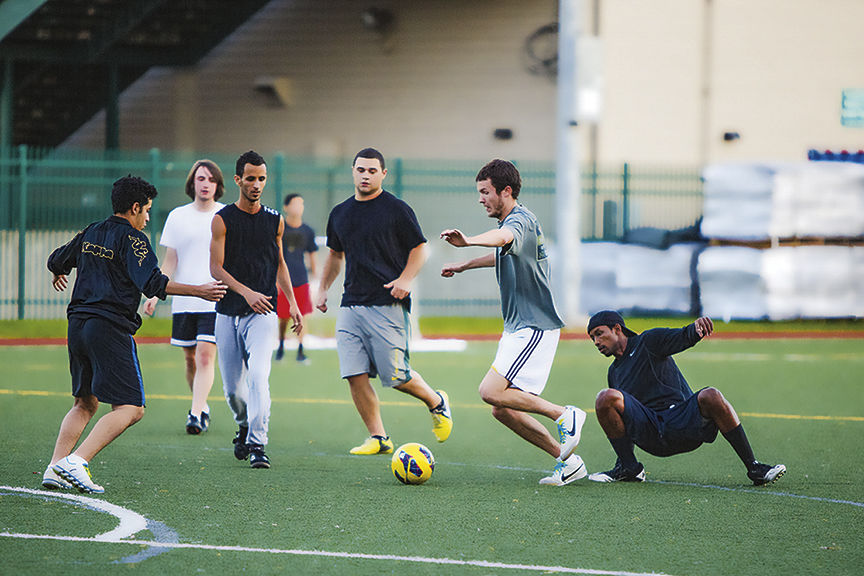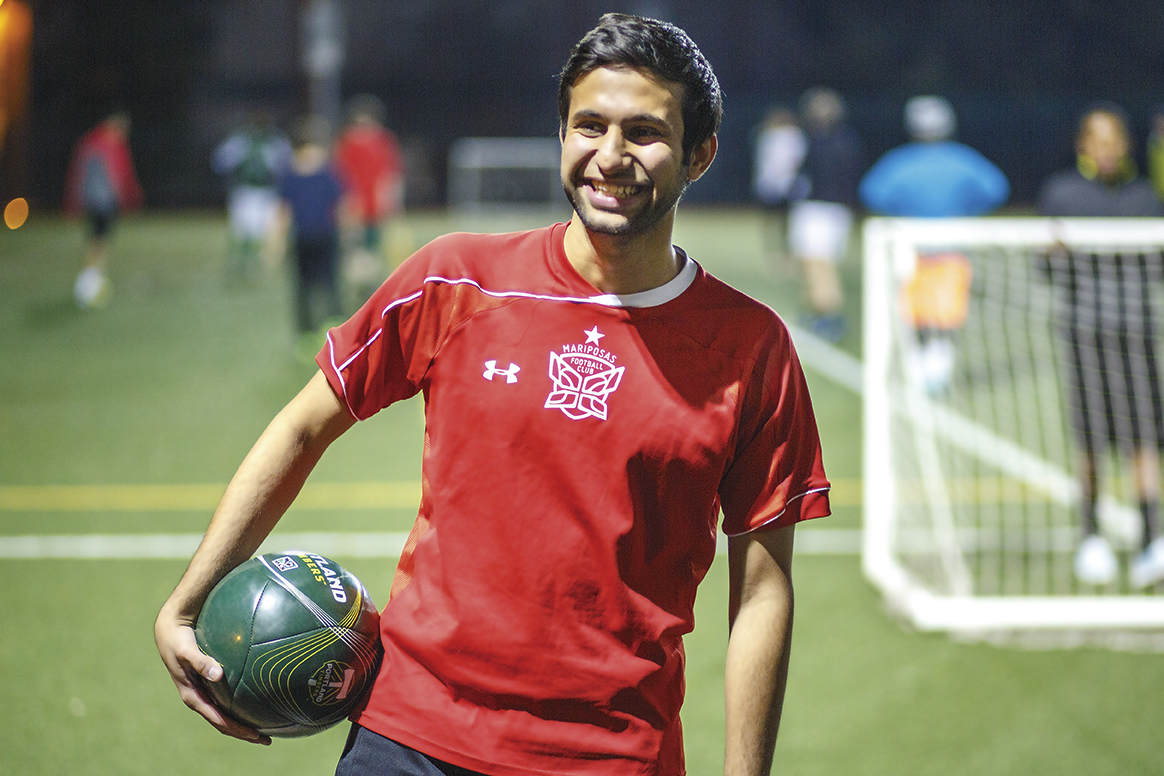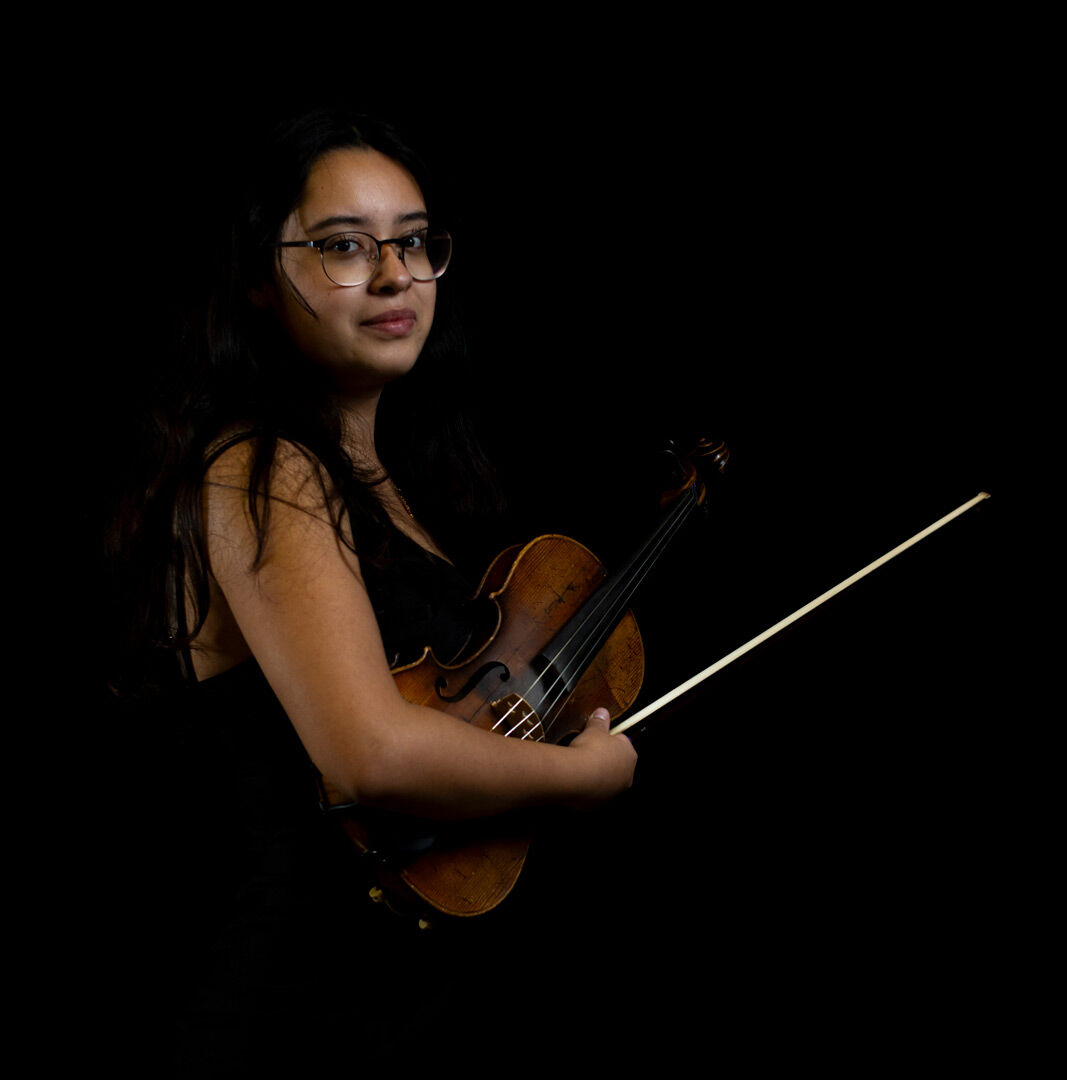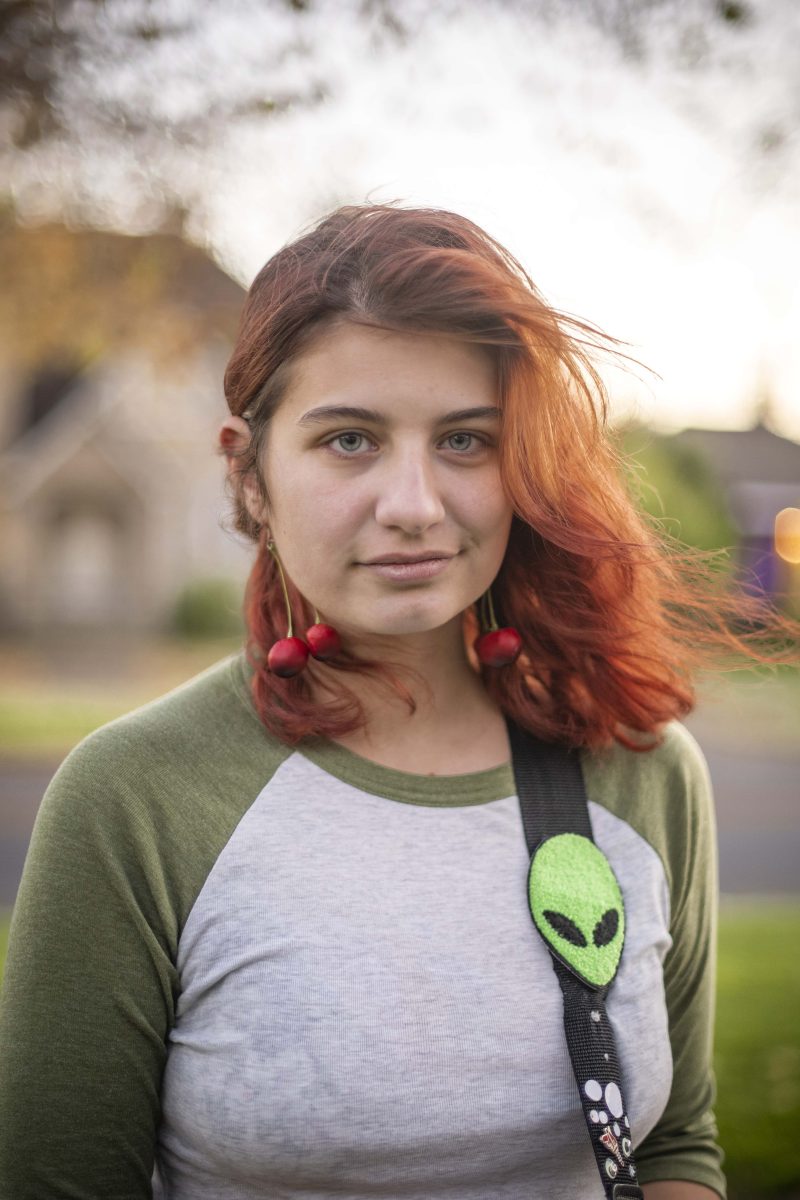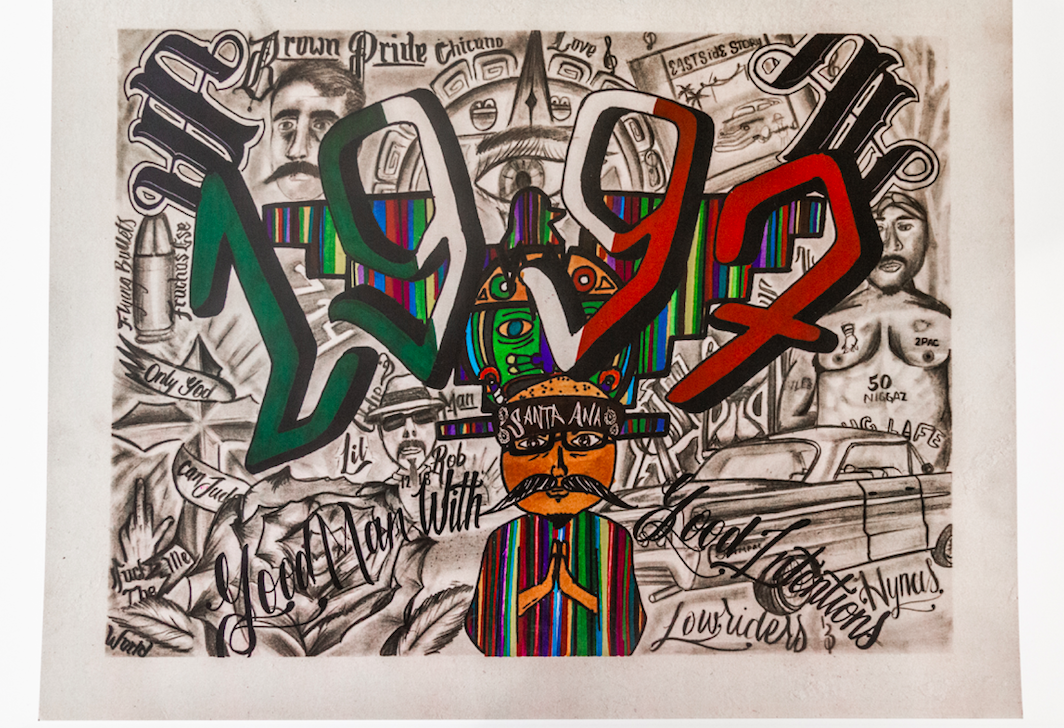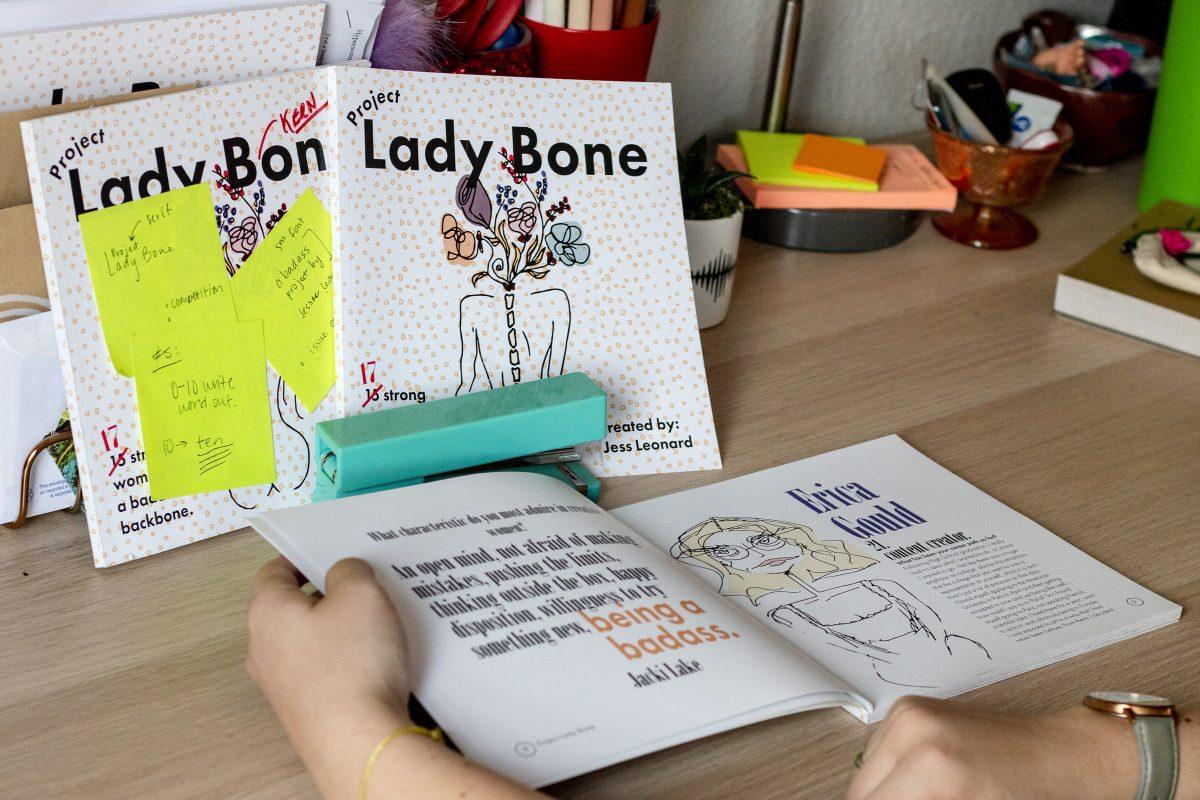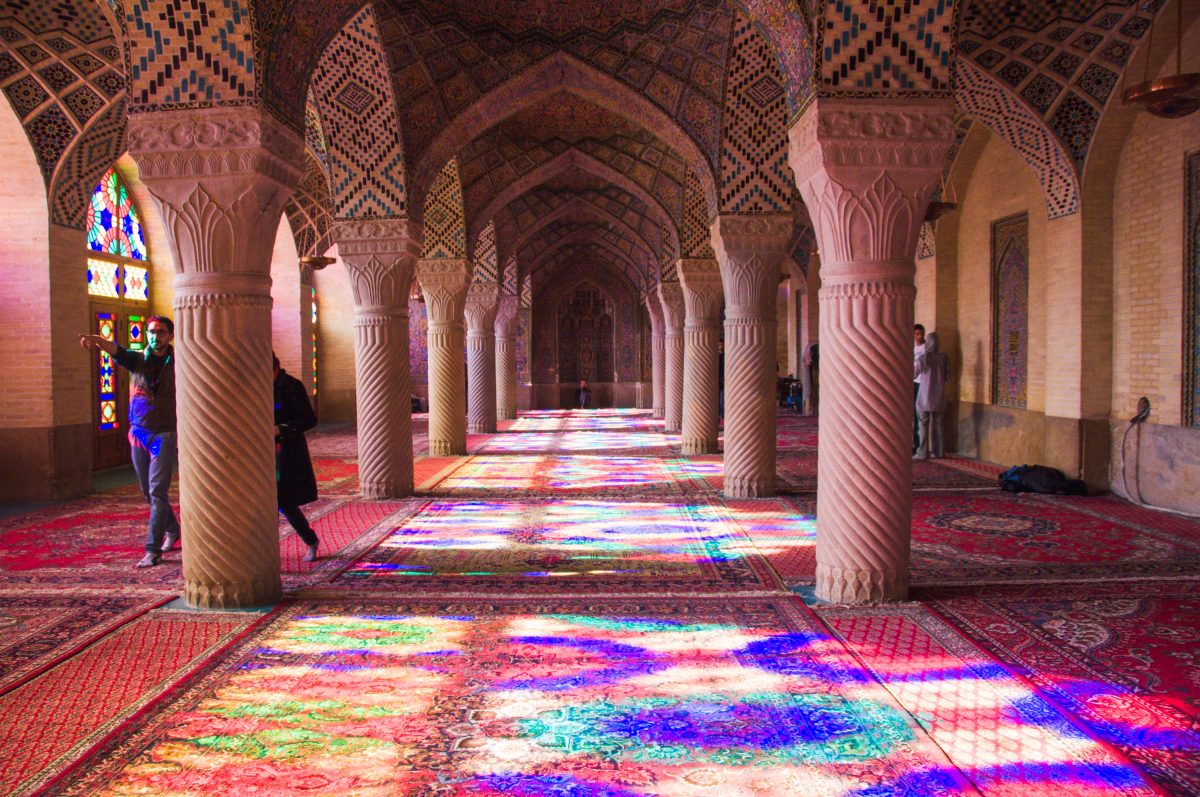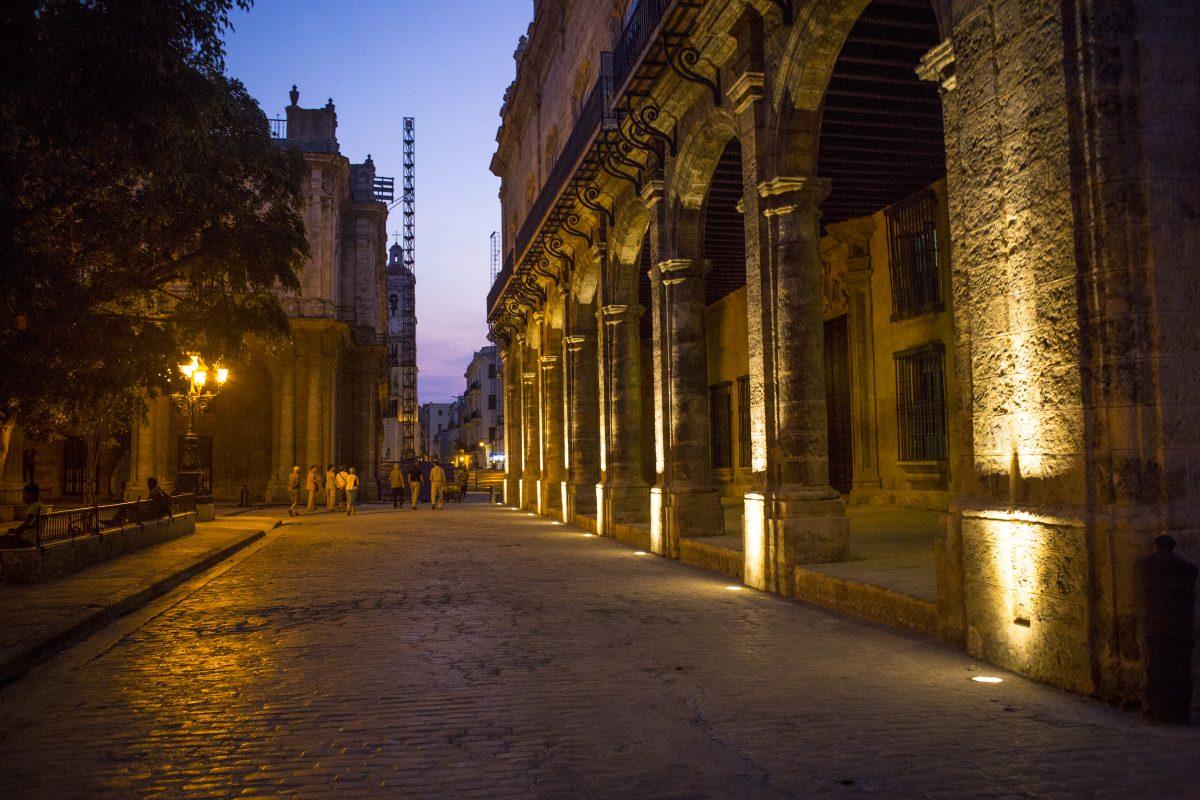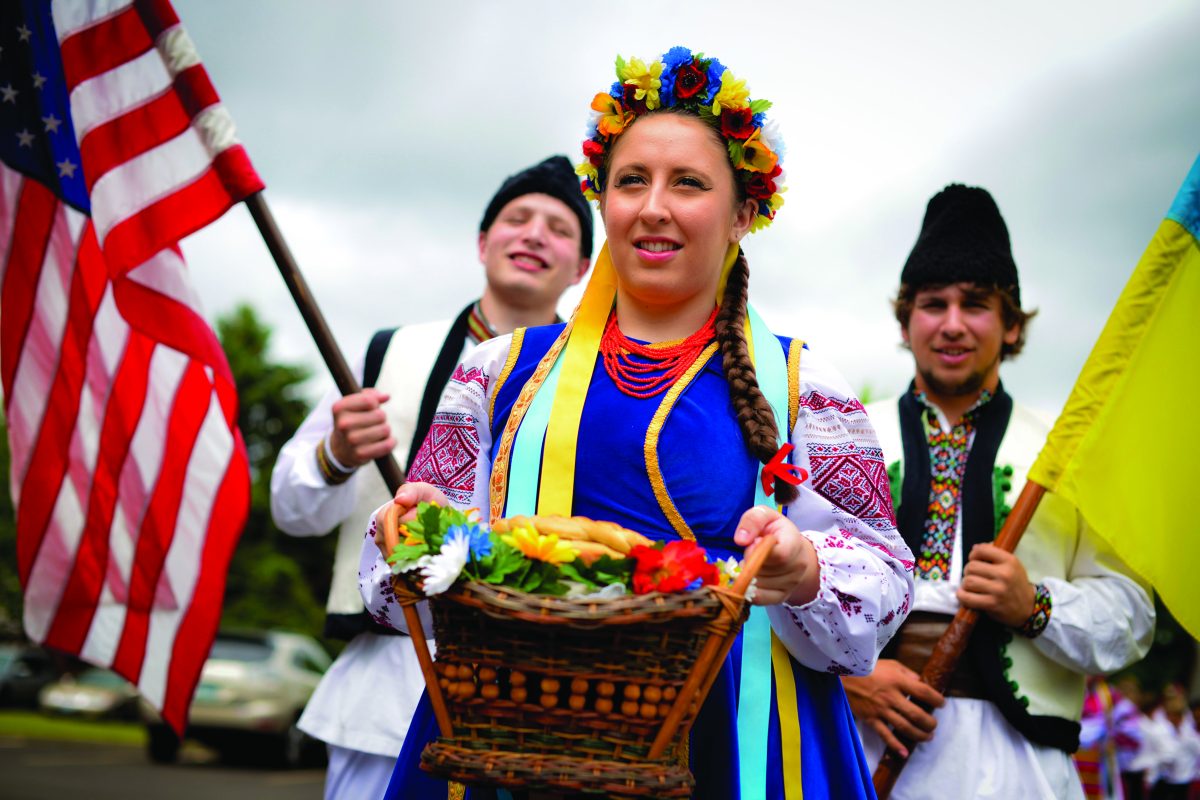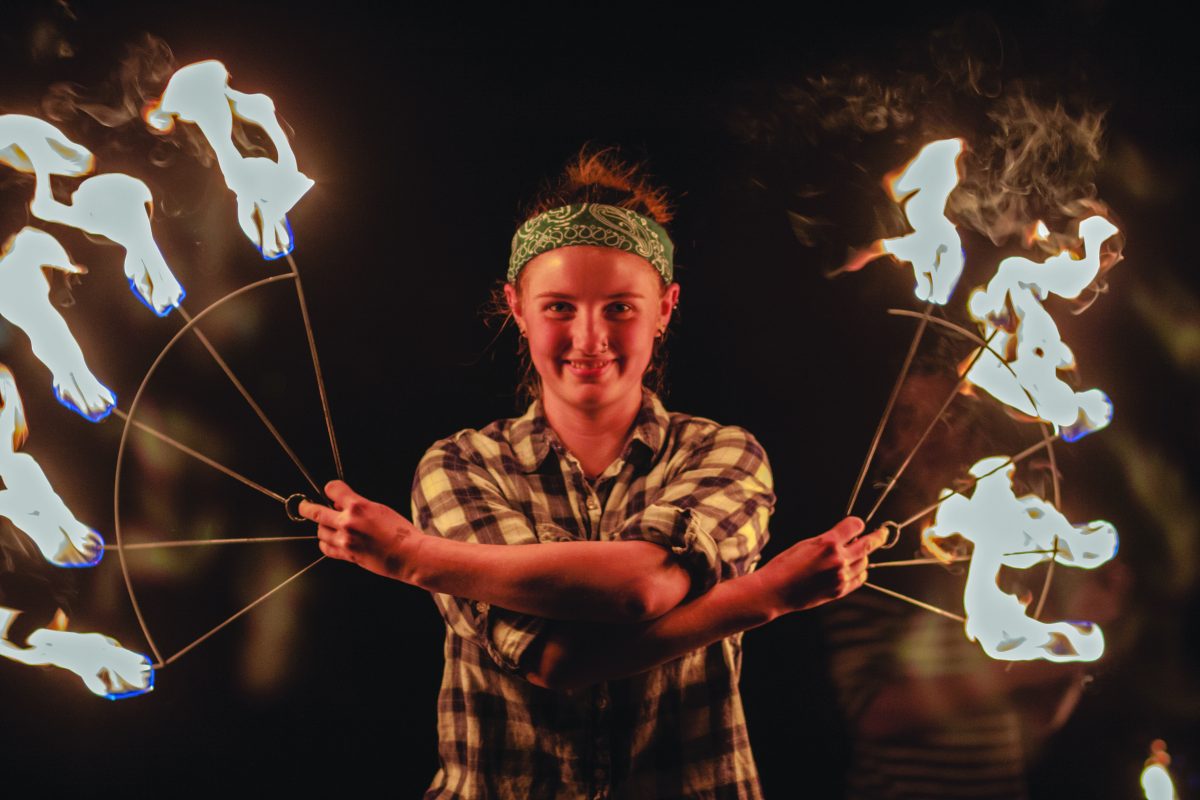Story by Reuben Unrau
Photo by Taylor Wilder
Video by Mark McField
[vimeo id=”83721552″ width=”620″ height=”360″]
As the sun sets on a crisp autumn evening at the University of Oregon, a nightly ritual unfolds. Sitting on the sidewalk, Blessing Chaendera, a 27-year-old Zimbabwean with flowing dreadlocks and a big smile, straps on his studded boots and darts toward the action. Now in the center of the battle, he shouts commands to his comrades. “Move it over here!” he yells with a slight accent, “Cross it!” All eyes are on Abdullah Alharbi, the slender UO sophomore from Saudi Arabia, as he dances elegantly past the defense, leaving them dead in his tracks. With one swift kick, Alharbi rifles a shot through the net and his troops let out a unified cry of joy, “Goooooaaaal!”
This is nightly pick-up soccer in Eugene, Oregon, and for the dozens of players representing countries from nearly every continent, this is their sanctuary.
Pick-up soccer games have been a tradition at the University of Oregon recreation fields for countless years. They offer an alternative to organized competition as they are open to all and consist of a hodgepodge of players who range in age, size, gender, skill level, and nationality. Games typically begin around 5:30 p.m. at the Student Recreation Center’s soccer field nearest to the student dormitories, occupying about a third of the field’s space and using small-sized goals. By 6:00 p.m., influxes of anxious footballers—as the sport’s players are called elsewhere in the world—descend on the field. The playing area is expanded, the goals are shifted back, and by the time the stars are out and the lights are turned on, the game is in full force with up to a dozen players on each team.
The pick-up regulars know one another by name, teasing and laughing together. Newcomers are always warmly welcomed, often times entering games shaking hands and introducing themselves. But whether new or old to the UO turf, soccer has been a lifelong passion for most, if not all of these players.
Chaendera began kicking the ball around his Zimbabwean neighborhood when he was just five years old. “Soccer has been my life,” he says while adjusting his cleats before a game. He recalls leaving his house as a boy and being greeted by flocks of footballers flooding local streets and parks where pick-up games were always in action. When he began studying at the UO two years ago, he discovered the nightly games and was immediately drawn in by the grand spectrum of international players. “We got guys from Saudi Arabia, me from Africa, other guys from the U.S., and others from Mexico,” he says. “This is awesome. It’s always good times.”
Nightly pick-up games exemplify the diversity among UO students as well as the sport’s power to act as a common language between players of different nationalities. On any given night, a goal could be assisted by passes from Japanese, Chinese, Mexican, Uruguayan, Guatemalan, Argentinian, Italian, or Iraqi players, just to name a few.
The University of Oregon’s mission statement includes “a commitment to international awareness and understanding.” While there are few established outlets that embrace this intent of multiculturalism, soccer acts as an organic, unifying force that breaks down cultural barriers. Some of the players might not know one another by name, but through similarly clever flicks of the feet, it appears they could be close friends; the atmosphere is unfailingly positive.
Farhan Jabri, a 27-year-old Lane Community College student from Saudi Arabia, notices that in both his home country and in the U.S. there is a lot of shouting involved in pick-up games, but to him, it is just an inherent part of the sport. “Yelling is just for in the field,” he says, speaking slowly and carefully. “We are not taking anything from here to outside. We are friends. We are more than friends.”
A Sport of Language
Each player has his or her own motivations for coming out every night to play. For Abdullah Alharbi, “the standard for being cool there is being a good soccer player.” The pick-up games serve as an interactive classroom for him to develop his English skills.
Alharbi came to Eugene in December 2012 with the goal of becoming fluent in English. He took English classes throughout high school in his hometown of Unaizah, but he became frustrated with his teachers’ refusal to speak and integrate English in the classroom. He recalls a time in class when he mustered up enough courage to ask his professor, in English, if he would be willing to teach more English lessons. With a blank face, the teacher responded in Arabic, “I’ll try.”
When Alharbi first arrived in Eugene, he was discouraged by how little English he knew. Words flew by in a blur, and he found himself sticking to a circle of Saudi international students. Things changed when he discovered the evening pick-up games in the heart of campus.
When he began playing, he silently shuffled around the field as he listened intently to the on-field communication. On his first day out, he remembers people yelling at him to pass, but Alharbi, still lost in the language, played on without even understanding the meaning of the simple soccer commands. He treated soccer as a nightly English lesson, always quietly absorbing words while enjoying the sport he had loved his whole life. Week by week, English vocabulary began to sink in and he spoke up more and in the process, he started making friends from the U.S. “I met a lot of people through soccer, so I am very thankful for that.”
A Sport of Expression
“Soccer’s great virtue is that it allows for individuals and groups to express who they are as people by how they play the game,” says Ken Pendelton, a PhD in philosophy and sports scholar who taught a Soccer and Global Conflicts class last year at UO. “At a certain point after watching a player, you feel like you know who they are. You really come to see their personality by what they do to control the ball.” This sentiment rings true for many of the pick-up regulars, as players are characterized by their typical movements and composure with the ball. In sports like American football, players repeat a certain movement play after play. Soccer requires more improvisation and reactive creativity. How players dribble, push the ball into open space, guide the ball on the edge of the sideline, or even celebrate a goal are indicators of their identity.
Chaendera, undoubtedly the most outgoing player on the field, demonstrates his energetic personality through his play. When he is open, even for just a moment, he waves his hands wildly in the air and screams for both the pass and attention. With the ball at his feet, he puts on a dramatic display—his arms are outstretched, his fingers spread out like jazz hands, and he sprints through the field with full force and physicality. After scoring a goal, his exuberance comes to a climax as he jumps high in the air, emphatically pumping his clenched fists upward. “Let’s go guys, let’s go!” he yells as the ball is put back into play.
Kai Rojas, a sophomore who grew up playing soccer for clubs in Argentina, is mild-mannered in person. He speaks in a relaxed tone and typically responds with a witty comment and a quick chuckle. This nonchalance and playfulness is similarly expressed through his play. He stands casually in the defense, hands resting in his pockets, and dribbling with supple South American suaveness, shifting the ball from foot to foot with effortless confidence. He is always open to displaying his fancy footwork, but when it fails, he just laughs and calmly shrugs it off.
Alharbi has noticed that there is a distinct contrast between the way his fellow countrymen play the game and how Americans play. He feels Saudi Arabians play more attack-minded football and possess quicker dribbling skills, whereas Americans pass more and are more physical. For Alharbi, much like his ability to speak Arabic and English interchangeably, he is attracted to both styles of play. “When I see other people from my country play, it looks familiar to me,” he says. “But I would like to combine the two ways: dribbling, but also passing and athletic. That would be perfect for me.”
A year has passed since Alharbi came to Eugene, but soccer still remains his primary outlet for recreation and self-expression. He plays on two indoor soccer teams, one through UO intramurals and the other through a Eugene city league team. He has even tried-out for the city’s upcoming third-division soccer club, Lane United FC. Classes have become more challenging for him as he works his way through higher-level courses, but in his free time, the UO field is still his second home.
Alharbi’s English has improved by leaps and bounds since his first few months in America, when he felt utterly lost in translation. He speaks almost fluently and has developed a commanding presence on the field, now signaling for passes and grumbling about missed opportunities for goals. He has even begun to incorporate slang into his regular communication with friends; “Hit me up if you want to play soccer this week, dude. You know I’m always down to play.”
Abdullah Alharbi laughs at a joke a fellow teammate makes while walking backwards toward the Rec Fields in Eugene, Ore. on Nov. 21, 2013.


